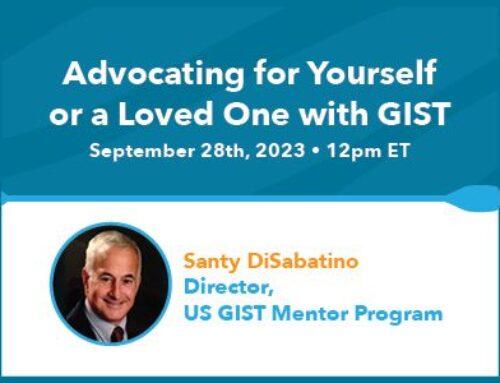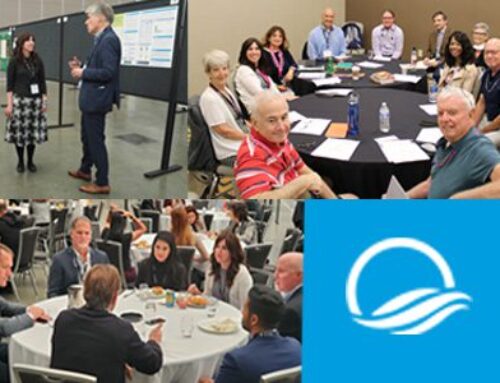How long must dying patients wait for justice? In a recent edition of the Wall Street Journal, Gregory Conko, Director of Food Safety Policy at the Competitive Enterprise Institute, an advocacy group based in Washington DC, wrote an opinion piece entitled, “Sick Patients Need Cutting-Edge Drugs”.
The event that inspired this passionate and demanding article was the death of 13-year old Anna Tomalis. Anna battled a rare form of liver cancer called embryonal sarcoma since September 2005. On August 15, 2008, she lost that battle.
At first, surgery and chemotherapy appeared to have worked for Anna. But in March of this year, her cancer recurred. With a little hard work and research, Anna’s family discovered an experimental drug developed jointly by Ariad and Merck called Deforolimus.
Anna was too sick and too young to be admitted into the clinical trial, but she fought to gain access to the drug on a “compassionate-use” basis. She and her family fought for months.
Kianna’s Story
In 2005, the Wall Street Journal wrote a piece about Kianna Karnes. She was also waiting for the FDA to consider her petition to receive an experimental drug. The Journal proposed “Kianna’s Law” to reform clinical
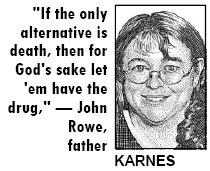 testing process for drugs to treat life-threatening illnesses.
testing process for drugs to treat life-threatening illnesses.
At a time when numerous “Terri’s Law” proposals were being introduced in the wake of the Terry Schiavo case, countless advocates, concerned friends and family and WSJ staff were wondering, “Where is the government intercession for Kianna Karnes?”
In the aftermath of this article, Bayer and Pfizer (developers of two investigational drugs showing much promise for this particularly deadly cancer) both contacted her doctor almost immediately to discuss the appropriateness of providing the compounds. Mrs. Karnes’ family was also contacted by the Food and Drug Administration (FDA) and was told that the agency stood ready to approve such treatment on an emergency basis.
It came too late. Karnes died the very day the FDA approved her exemption.
The FDA’s Story
According to Conko, new drug approvals by the FDA has fallen dramatically. Last year, just 16 new drugs were approved. This is a shocking number compared to 53 approvals in 1996 and 39 in 1997.
Conko called attention to the heavy fire the FDA has come under after a few “high-profile drug scare”, such as the withdrawal of Vioxx from the market.
Last year, the FDA rejected five new cancer drugs, including one that was voted as safe, 13-4, by a panel of cancer experts. The FDA demanded more testing which may delay approval for three more years.
With this information, one wonders, “Is the FDA playing it too safe?”
Anna’s Story
Anna’s struggle for an experimental drug ended this past July when she was finally granted access. Unfortunately, this drug also came too late. Anna’s treatment began at the end of July, but she died within weeks.
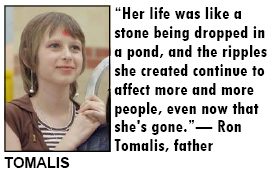 Despite her declining health, Anna and her family worked closely with two patient- advocate groups, the Abigail Alliance and A Right To Live. The LRG reported on the court case the Abigail Alliance was involved in since 2003 in our April 2008 issue. The Alliance cited “Due process” and argued that terminal ill patients who have run out of options have a constitutional right to try experimental drugs without FDA approval.
Despite her declining health, Anna and her family worked closely with two patient- advocate groups, the Abigail Alliance and A Right To Live. The LRG reported on the court case the Abigail Alliance was involved in since 2003 in our April 2008 issue. The Alliance cited “Due process” and argued that terminal ill patients who have run out of options have a constitutional right to try experimental drugs without FDA approval.
The case gained some ground in 2006 when a court of appeals voted in favor of the Alliance, but in January 2008, the case ended unfavorably in the Supreme Court.
Anna worked closely with these organizations to try and improve the compassionate- use process. The Access, Compassion, Care and Ethics for Seriously Ill Patients Act (ACCESS), which was originally introduced in 2005 and was reintroduced in May 2008 (Figure 1), is the fruit of these labors.
Mark’s Story
The GIST community is not untouched by this kind of tragedy. In late 2006, photographer and GIST patient, Mark Thomas struggled for and won the right to receive an experimental drug on a compassionate-use basis. Mark waited for the drug for months. On Christmas Day 2006, the drug arrived at Mark’s house. Unbeknownst to Mark, who 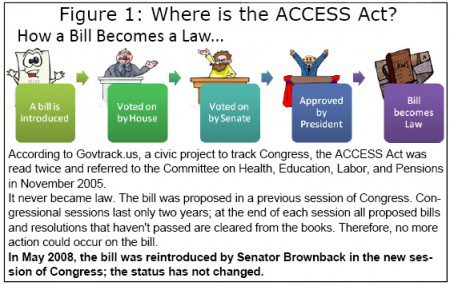 passed away that day, still waiting.
passed away that day, still waiting.
Waiting
Anna knew that the ACCESS Act would arrive too late to help her, but she continued to fight for it until she could fight no longer. While countless others sit and wait for times to change, Conko asks the supreme question, “Why do terminally ill patients have to wait so long to get access to the only treatments that hold any promise of saving their lives? And why is it not their right to decide?”

